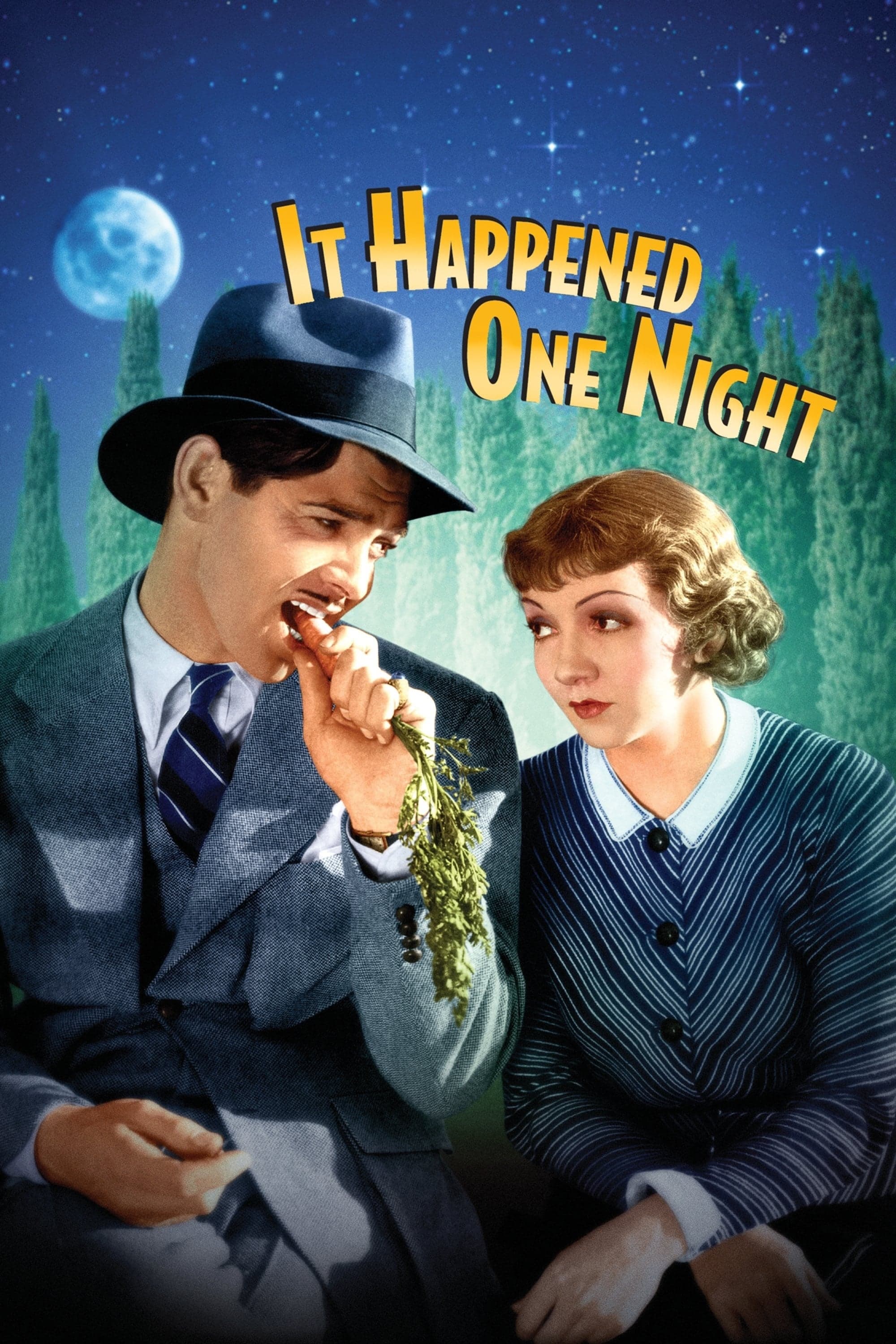
It Happened One Night
1934
Rate this movie
Average: 0.00 / 5
(0 votes)
Director
It Happened One Night is a flavorful comedy, as fresh as a ripe strawberry. This is the metaphor with which we feel best describes this joyful early work by Frank Capra, who already possessed that brilliant verve he infused into all his works, capable of turning a downturned lip into a bright smile with every scene. The film is a purest distillation of that "Capraesque" vision that would later permeate iconic films like Mr. Deeds Goes to Town or Mr. Smith Goes to Washington, where the candor of the common man clashes with the corruption of power, invariably emerging victorious. The film, with its freshness and modernity, won over audiences and critics, securing five Academy Awards (Best Picture, Best Director, Best Actor, Best Actress, and Best Screenplay) – a grand slam that, until then, had only been achieved by Cimarron, and which for the first time fully recognized the artistic value of a comedy, elevating it to the pantheon of immortal masterpieces. Capra, with a brilliant narrative rhythm and sparkling dialogue, gifts us a fun and romantic film that celebrates the power of love and the importance of individual freedom.
The story revolves around Ellie Andrews, a young and rebellious heiress who runs away from home to marry pilot King Westley, against her father's wishes. During her escape, Ellie meets Peter Warne, an unemployed journalist looking for a scoop. Initially distrustful of each other, Ellie and Peter find themselves forced to travel together, facing a series of adventures and misadventures. During their road trip, the two fall in love, but their love is hampered by social differences and the interference of Ellie's father.
Famous and iconic is the scene where Ellie explains to her travel companion how a well-displayed leg can work much better than any clumsy attempt at hitchhiking, a moment of liberating brazenness that caused a stir at the time and, in its almost innocent candor, foreshadowed the famous "walls of Jericho." The latter, a blanket hung between the two separate beds in the motel room, is not just an ingenious comedic and visual device, but a powerful symbol of the social and moral barriers that the two protagonists, coming from such different worlds, must break down – and which will literally end up collapsing. The chemistry between the two protagonists, Clark Gable and Claudette Colbert, is unforgettable, and their lines and glances created a kind of narrative artifice where the best way to describe the genesis of this love is to let the expressions and dialectic of the two lovers do the work. It is said that both Gable and Colbert were initially reluctant to accept the roles, the former "loaned" by MGM as punishment for indiscipline, the latter persuaded with difficulty. The result, however, was perfect synchronicity, a duet of grace and irony that set the standard for decades to come, proving how often great chemistries arise from unexpected premises. Their performance falls within the vein of a certain expressive freedom typical of the Pre-Code era (the film is from 1934, just months before the strict enforcement of the Hays Code), allowing for bolder lines and less sanitized situations than would have been possible shortly thereafter.
It Happened One Night fits into the screwball comedy genre, a genre that developed in the United States during the Depression years and was characterized by fast pacing, brilliant dialogue often infused with biting sarcasm and hilarious banter, and comical and paradoxical situations often featuring the "battle of the sexes" as its pulsating heart. It is a genre that thrived on the tension between opposites, masking social critique with lightness. Capra's film, however, goes beyond the genre's conventions, adding a romantic and sentimental dimension that makes it a unique and hard-to-categorize work. It's not just entertainment for its own sake; it's a comedy that resonates with the anxieties of its time. Furthermore, the film can also be read as a subtle but incisive social critique, questioning class differences and the hypocrisy of bourgeois society. Ellie's transformation, from spoiled heiress to a woman capable of appreciating genuineness and simplicity, is a parable about the rediscovery of true values, contrasted with the emptiness of wealth and the rigidity of social conventions. Ellie's character, with her rebellion against her father and social conventions, represents a model of female emancipation and individual freedom, anticipating complex and self-sufficient female figures in cinema by decades. Her escape is not just a whim, but a search for authenticity in a world that seeks to pigeonhole her.
Finally, the work can be considered one of the earliest examples of a Road Movie in cinema history. Ellie and Peter's road trip is not just a narrative device, but a fundamental element of the film, instrumental to the development of the relationship between the two protagonists, and at the same time central to the exploration of Great Depression America. Through encounters with picturesque characters and daily hardships, the film offers a vivid cross-section of a country grappling with economic crisis, showcasing the dignity and ingenuity of common people, in stark contrast to the sterile opulence of the circles from which Ellie originates. Capra, with his narrative mastery, skillfully used the journey as a device for the genesis of his characters and for discovering the environment by telling its story through images, transforming the American landscape into a catalyst for inner change. A legacy that would later be picked up by films like Easy Rider (1969) or Thelma & Louise (1991), to name two films that drew heavily from this picture, but whose stylistic and thematic genesis finds one of its purest and most successful expressions here. Its influence extends far beyond the road movie or screwball genres, outlining the coordinates for countless subsequent romantic comedies, where the dynamic of opposites attracting, the flight from the norm, and the search for authentic love become enduring archetypes. It Happened One Night is not just a film, but a cinematic experience that continues to shine with its own light, a testament to the magic of classic cinema and the ability of a simple story to capture the essence of the human spirit with lightness and depth.
Country
Gallery
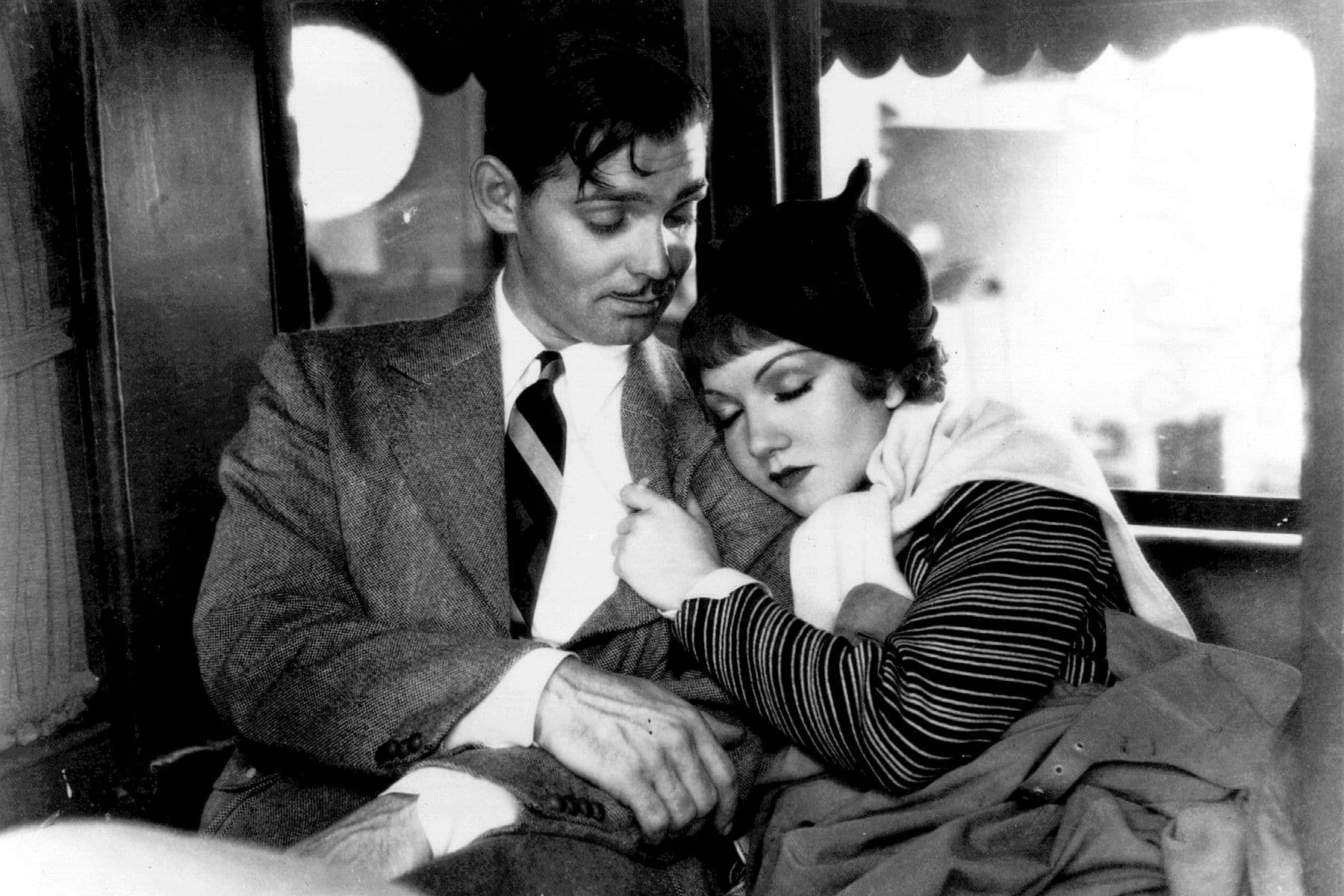
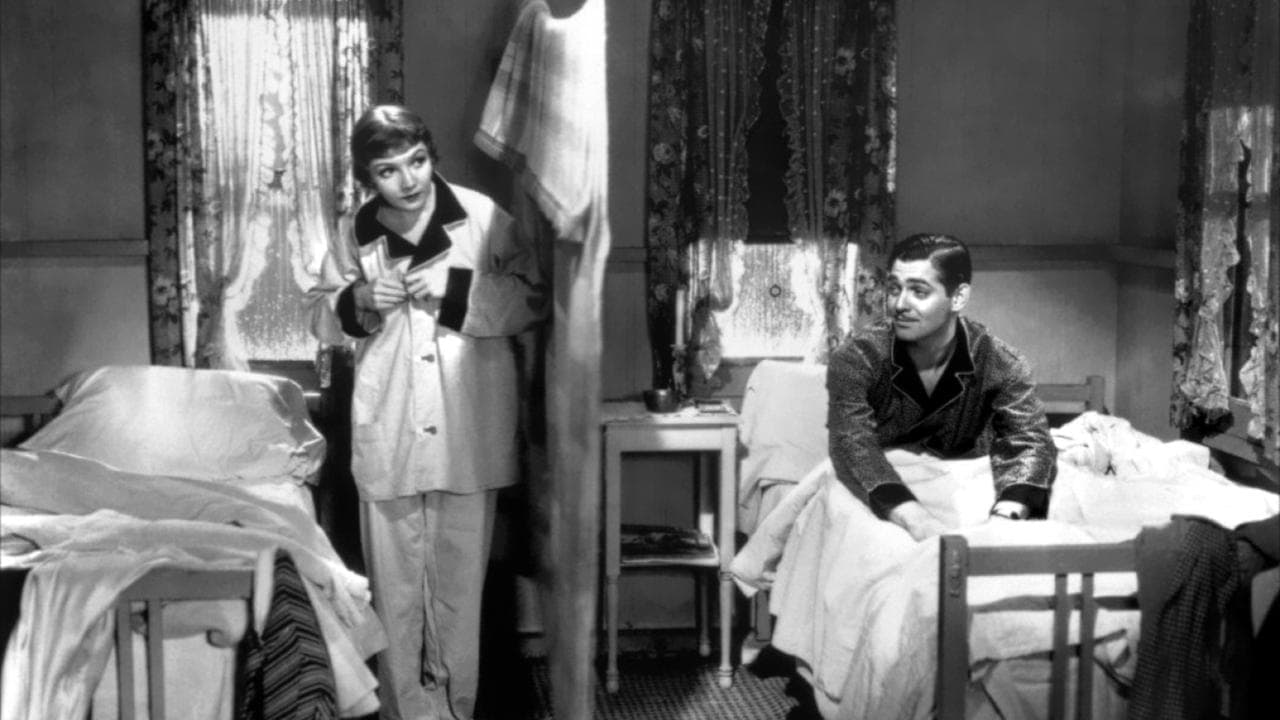
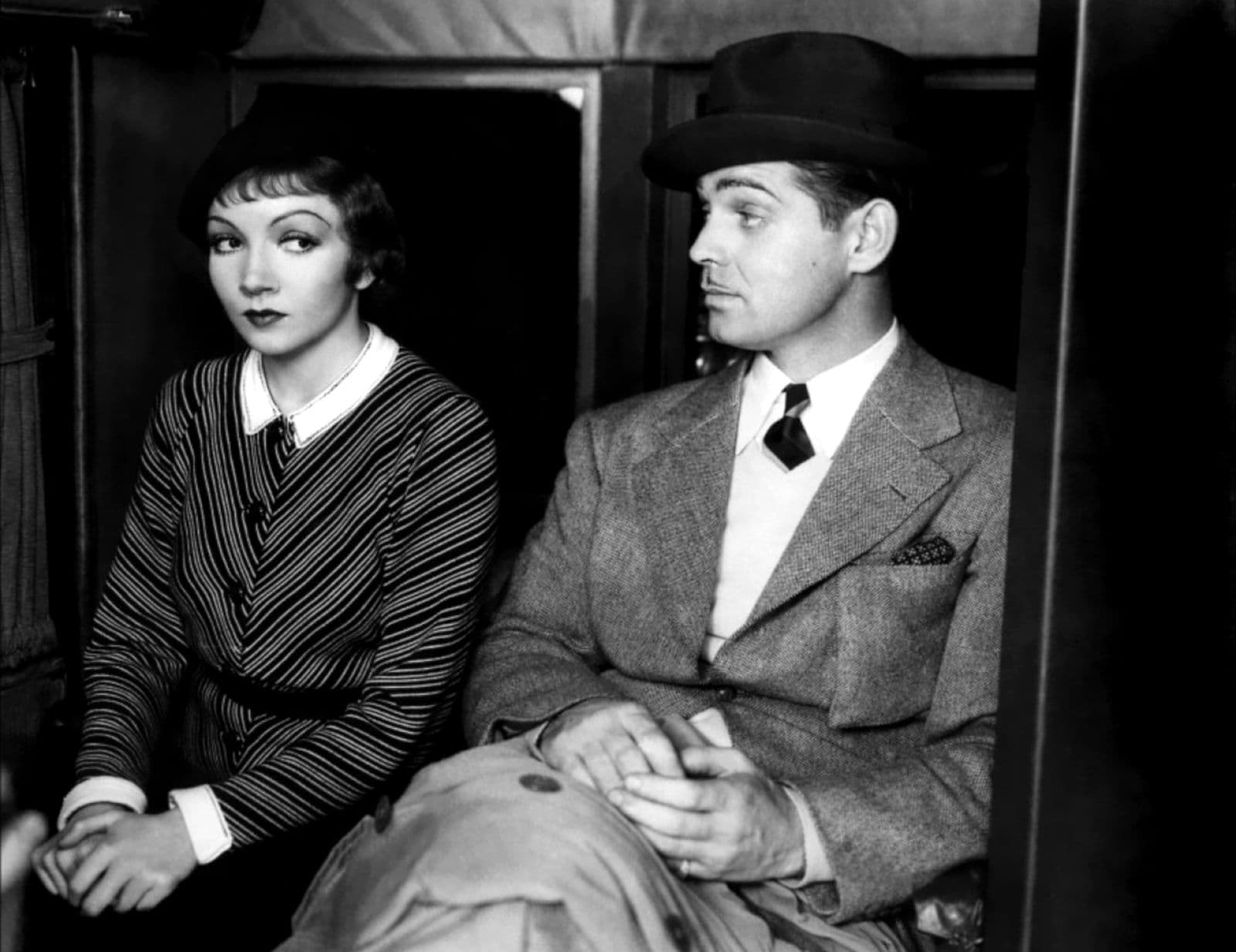
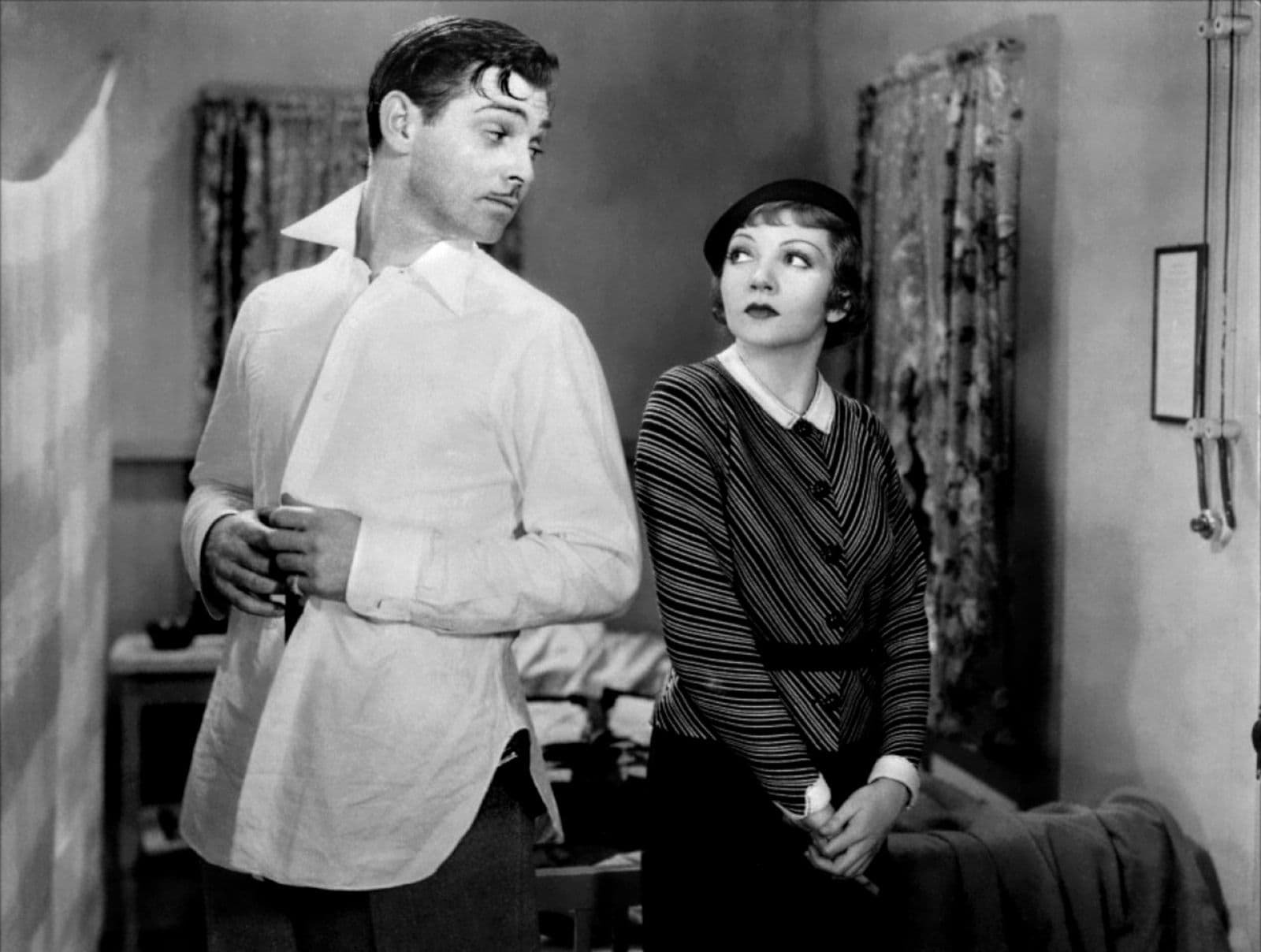

Featured Videos
Official Trailer
Memorable Scene
Comments
Loading comments...